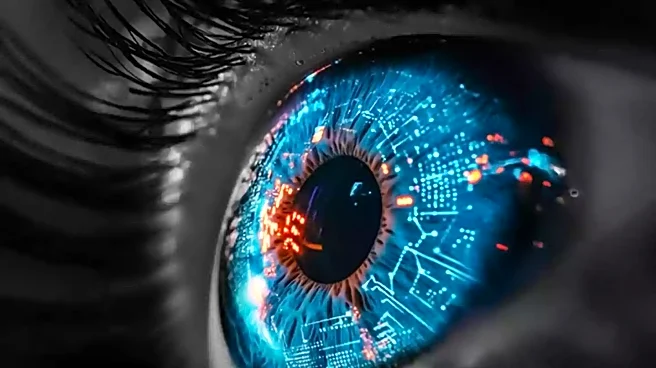What is the story about?
What's Happening?
A recent study has investigated the use of machine learning models to predict retinal sensitivity loss in patients with geographic atrophy (GA) secondary to age-related macular degeneration (AMD). The study utilized microperimetry and spectral-domain optical coherence tomography (SD-OCT) imaging, applying deep-learning algorithms to segment retinal layers and infer sensitivity data. The research aimed to enhance the accuracy of functional assessments in clinical trials by incorporating patient-specific baseline data. The random forest model demonstrated the highest predictive accuracy, significantly reducing test variability compared to traditional methods.
Why It's Important?
This study represents a significant advancement in the field of ophthalmology, particularly in the management of GA. By providing a more accurate and automated method for assessing retinal sensitivity, the research could improve the design and evaluation of clinical trials for retinal diseases. The ability to predict functional progression over time offers a robust alternative to traditional psychophysical assessments, which are often limited by variability and practical constraints. This could lead to more effective treatment strategies and better patient outcomes.
What's Next?
Future research should focus on validating the inferred sensitivity mapping approach in larger and more diverse cohorts. Additionally, exploring the integration of this method into clinical trial designs for retinal diseases could further enhance its applicability and effectiveness. Continued development of machine learning models may also improve their predictive accuracy and reduce variability in functional assessments.
Beyond the Headlines
The use of machine learning in medical diagnostics raises ethical considerations regarding data privacy and the potential for algorithmic bias. Ensuring that these models are trained on diverse datasets is crucial to avoid disparities in healthcare outcomes. Furthermore, the automation of diagnostic processes may impact the role of healthcare professionals, necessitating discussions on the balance between technology and human expertise.
















